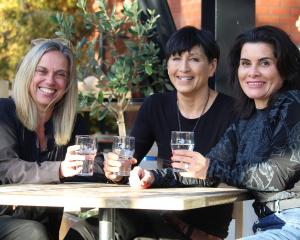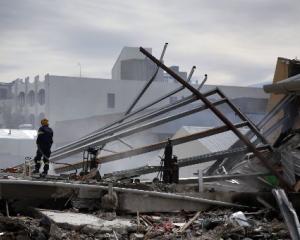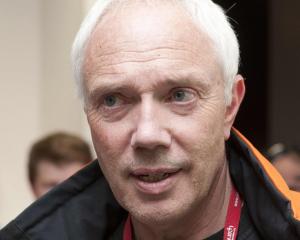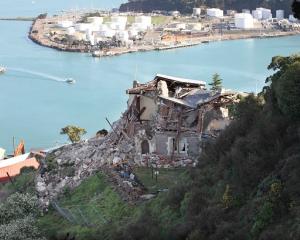A third of New Zealand's Urban Search and Rescue (USAR) personnel are about to head to Japan but officials are confident those remaining will be able to deal with any significant emergency at home.
The New Zealand Fire Service National Manager for Special Operations Jim Stuart-Black said the departure of the 48 staff "won't compromise our capability".
He spoke at a briefing today at the Christchurch emergency operations centre close to where search and rescue teams have been operating since the February 22 earthquake, which has claimed at least 166 lives.
The 120-strong Japanese team of 120 headed home today and go straight into their own country's earthquake and tsunami crisis.
Mr Stuart-Black will leave with an advance party of the New Zealand team that is being sent to help later today, and the rest will follow within two days for a stay of 10 days to three weeks.
With the remaining staff, as well as personnel from the Fire Service and other emergency services, and gear given to New Zealand by the American rescue teams which will stay here, there would be a "sufficient capability" still in New Zealand, he said.
Emergency officials at the briefing spoke of their sorrow at the damage to a country that had been quick to help New Zealand with its own emergency. Fire Service acting assistant national commander Dan Coward thanked the Japanese team for their support and dedication "and the values they contributed to us and our community".
"Our thoughts and prayers go with them," he said.
Civil Defence national controller Steve Brazier also said he was confident that the resources remaining in Christchurch were adequate to deal with the work USAR continued to do.
Mr Stuart-Black had just begun a period of leave when the earthquake struck Japan yesterday. His leave lasted just four hours, Mr Brazier said.
Meanwhile, in Christchurch stopbanks along the city's rivers had been checked and sandbags were put in place where there had been slumping. A spring tide was due on Thursday, which would also cause the level of ground water to rise.
"It could be an unpleasant combination where there is high ground water levels and broken sewage pipes," he said.
Police Superintendent Russell Gibson made it clear that police still expected to find another 14 bodies buried in the city's rubble, based on the number of people reported missing. He said 166 bodies had been found but police believed the final toll would be 180.
Police were slowly getting cars out of the central business district (CBD) but it was a painstakingly slow process, and it had not been a priority so far.
Between 3000 and 4000 vehicles were trapped in the area and the police were working to return them to owners. Owners could call 0800-311-311 to register their vehicles but they should do it only once, Mr Gibson said.
Mr Brazier told the briefing the Grand Chancellor hotel -- one of the tallest buildings in the city, which is slumping -- was still being assessed by structural engineers.
Some business owners in Orange Zone 4 and the Red Zone were being contacted about a chance to get to their premises to retrieve essential business gear on Monday. Owners had not been contacted where buildings were still too dangerous.
"For some businesses, they won't be getting back into their buildings any time soon," he said.
Meanwhile, about 4800 Christchurch customers remain without power.
"We are now at the stage of requesting customers outside the wider CBD (outside the four avenues) who remain without power to call us on 363 9898 to ensure that we have you in our system," a spokesman said.






